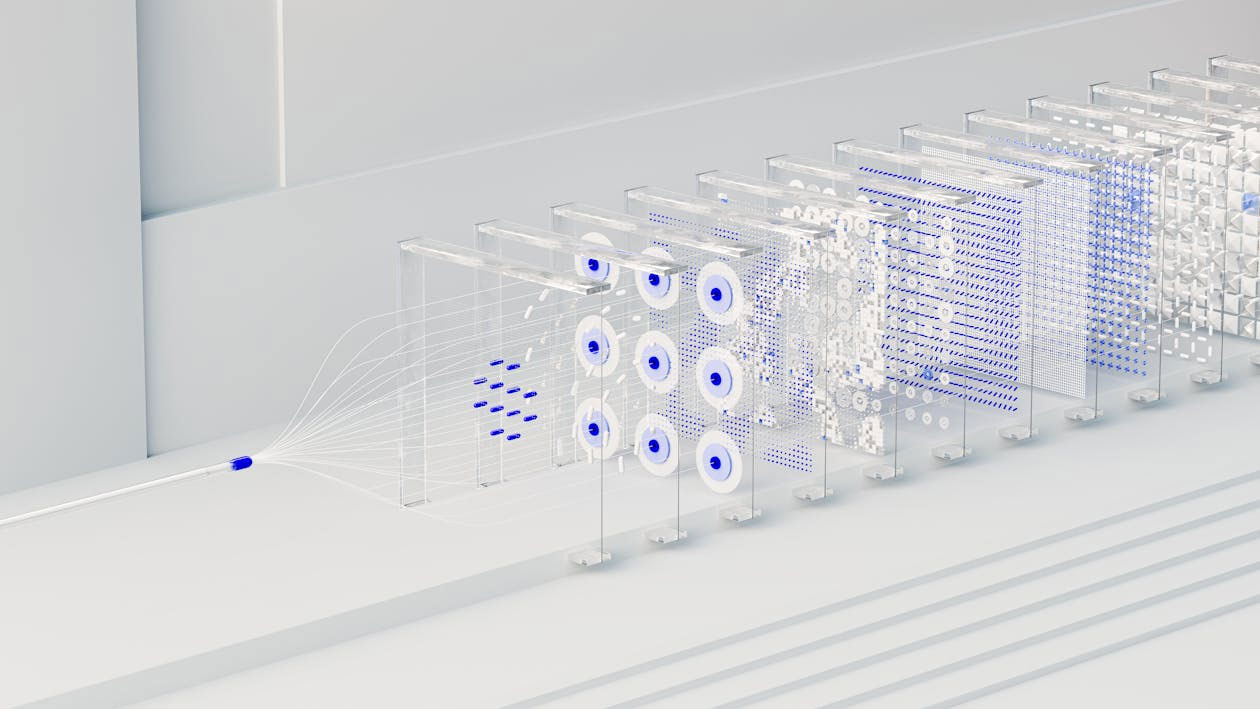In the relentless quest for performance and reliability, the oil and gas industry continues to push the boundaries of innovation. One groundbreaking solution turning heads is the use of Inconel 625 produced by laser powder bed fusion (LPBF) additive manufacturing. This combination marries one of the most advanced nickel-based superalloys with a streamlined production process that enhances design freedom, reduces lead times, and meets the harsh demands of the oil and gas environment.
The Demands of the Oil and Gas Environment
Components in the oil and gas industry routinely operate under extreme conditions—high pressures, elevated temperatures, and exposure to corrosive substances such as hydrogen sulfide and saline environments. Traditional manufacturing processes, while robust, often struggle to deliver components with the intricate geometries and refined material properties needed for long-term reliability in such unforgiving conditions. In this scenario, Inconel 625, known for its exceptional mechanical strength and excellent resistance to oxidation and corrosion, steps up as a material of choice. When combined with the precision of LPBF, manufacturers can create parts that are both resilient and complex in design, fulfilling the unique needs of the industry.
Understanding Inconel 625
Inconel 625 is a nickel-chromium alloy fortified with molybdenum and niobium. This composition grants it distinctive characteristics that are invaluable in oil and gas applications:
Corrosion Resistance: Inconel 625 exhibits superb resistance to pitting and crevice corrosion, even in chloride-rich atmospheres. This capability is critical for safeguarding components in environments where corrosive agents are pervasive.
High-Temperature Performance: Its ability to maintain strength and stability at elevated temperatures makes it an ideal choice for components that must withstand severe thermal cycling and stress.
Mechanical Strength: The alloy’s crucial strength attributes ensure that parts retain structural integrity and dimensional accuracy under cyclic loads and fluctuating pressures.
These properties make Inconel 625 a hero in applications ranging from downhole drilling components to valve assemblies and heat exchangers—parts that are integral to maintaining oil and gas production integrity.
For operations as complex as offshore oil extraction the need for parts that can withstand extreme pressures and temperatures is critical for efficient operations with minimum interruptions.
How Laser Powder Bed Fusion Enhances Production
Laser powder bed fusion is at the forefront of additive manufacturing technologies. In LPBF, a high-powered laser selectively fuses powdered metal layer by layer, following a computer-aided design (CAD) file. This process offers several advantages over conventional manufacturing methods:
Design Complexity and Optimization: Traditional techniques like machining or casting are often limited when it comes to producing intricate internal channels or lightweight lattice structures that can reduce weight without sacrificing strength. LPBF, however, excels at producing components with complex geometries that would be unachievable by conventional means.
Near Net-Shape Production: LPBF minimizes the need for extensive post-processing by building parts close to their final geometry. This precision reduces waste and shortens production cycles—a crucial advantage for industries vying to minimize downtime.
Customization and Rapid Prototyping: With LPBF, manufacturers can rapidly revise designs or produce bespoke components tailored to specific operational requirements, offering unparalleled flexibility in an industry where conditions and requirements can change in an instant.
Specific Application: High-Performance Valve Components
One particularly compelling application of Inconel 625 produced via LPBF is in the production of high-performance valve components. In the oil and gas sector, valves are the unsung heroes that regulate flow, manage pressure, and ensure system integrity. They are regularly exposed to high-stress environments where even minor performance lapses can lead to significant safety hazards or costly downtime.
The Additive Manufacturing Advantage
By leveraging LPBF to produce Inconel 625 valve components, manufacturers can overcome these obstacles innovatively. Here’s how:
Enhanced Geometric Complexity: LPBF enables the creation of valve internals with optimized flow passage designs—a critical enhancement that improves fluid dynamics and reduces turbulence. This results in valves that can handle high flow rates while minimizing pressure drops.
Tailored Material Properties: Through the precise control offered by additive manufacturing, engineers can strategically design microstructures that enhance the performance characteristics of Inconel 625. This means valve components can be customized to operate efficiently under specific pressure and temperature conditions endemic to oil and gas extraction and processing environments.
Reduced Inventory and On-Demand Production: A supply chain that has historically depended on mass-produced, standardized parts can now shift towards a model where components are produced on-demand. This not only drives down inventory costs but also ensures that components are available when needed, reducing downtime. In scenarios where a specialized valve is required for a unique challenge in a remote oil field, LPBF production of Inconel 625 parts can be expedited to meet operational demands.
Economic and Environmental Benefits
The adoption of LPBF for Inconel 625 part production also carries economic and environmental advantages:
Cost Efficiency: Additive manufacturing reduces material waste due to its near net-shape production capabilities. Lower relative material consumption and decreased post-processing requirements translate into cost savings—savings that can be redirected towards innovation and further research.
Sustainability: Reduced waste and shorter supply chains are inherently more sustainable. With the oil and gas industry under increasing pressure to adopt greener practices, LPBF presents an attractive proposition by lowering the environmental footprint associated with traditional manufacturing methods.
Resource Optimization: On-demand production minimizes the need for large inventories of rarely used parts. This lean approach reduces storage and handling costs, while also ensuring that the right part is available at precisely the right time.
Looking to the Future
The union of Inconel 625 and laser powder bed fusion represents a promising frontier for the oil and gas industry. As manufacturing precision and material science continue to evolve, we can expect broader adoption of these advanced production techniques. Enhanced performance, faster turn-around times, and the potential for designs that were once considered impossible are just the beginning.
Engineers and industry stakeholders are continuously exploring new applications where the intrinsic benefits of LPBF—especially with high-performance alloys like Inconel 625—can be exploited to their fullest potential. Future developments may see other critical components, such as compressor or turbine blades for offshore platforms, being produced using these cutting-edge methods. The ongoing evolution of design and production not only promises to revolutionize component performance but also stands to redefine operational dynamics in one of the world’s most challenging industrial sectors.
Additive manufacturing with laser powder bed fusion is reshaping the landscape of industrial production, and nowhere is its impact more transformative than in the oil and gas industry. The production of Inconel 625 parts via LPBF isn’t merely a technical marvel; it’s a strategic advantage. By leveraging the unique properties of Inconel 625—its corrosion resistance, thermal stability, and mechanical strength—engineers can now craft valve components and other critical parts that thrive under the demanding conditions typical of oil and gas operations.
This innovative approach not only improves component performance and longevity but also offers significant economic and environmental benefits through reduced waste, enhanced onsite production capabilities, and a more resilient supply chain. As the industry continues to venture into deeper, more challenging environments, the role of advanced additive manufacturing processes in ensuring safe, efficient, and sustainable operations will only grow. For industry leaders looking to secure a competitive edge and drive operational excellence, embracing LPBF-produced Inconel 625 parts is a forward-thinking solution that paves the way for a new era in oil and gas technology.











